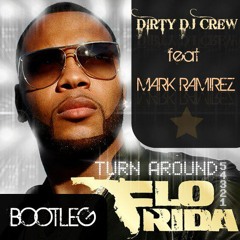

We already made mention of 'Starboy' and 'I Feel It Coming,' so let's focus on the middle, which features a three-song stretch of solid guest help. Thankfully there's never a long period of lulls, as Starboy's beginning, middle, and end all contain top tier tracks. Not helping matters is the album's hefty 68-minute runtime, and with duds like 'Ordinary Life,' 'Love To Lay,' and 'Rockin,' it's puzzling why The Weeknd didn't institute some quality control. On moments like these, unless done particularly well, the driving point is Abel's vocals, not the content, considering it does get old rather quickly. More than anything though, paranoia seems to be the primary theme, as tracks like 'Secrets,' 'True Colors,' and 'A Lonely Night' find The Weeknd contemplating nefarious acts from the opposite sex. The rest of Starboy details The Weeknd's various encounters with fame, lust, and addictions. Now sure, the other 17 songs here abide by the same formula, so I can't disagree all that much, but ending Starboy on 'I Feel It Coming' asserts The Weeknd, hair cut and all, as an enduring Pop superstar. With help from Daft Punk, and a different, more positive vibe, the album's grand finale is easily one of the best songs of the year, thanks to gorgeous hook vocals, both organic and robotic, and a tone shift that confronts critics about The Weeknd's sonic one-trick pony. That doesn't negate its sheer quality though, as 'I Feel It Coming' is essentially Pop perfected. All Starboy needs is a strong secondary single, which may be tough to come by as, in my opinion, the track with the most potential, 'I Feel It Coming,' was released alongside 'Party Monster' and a short film, giving it less attention by effect. Believe it or not, the title track is well on its way to eclipsing 'The Hills' and 'Can't Feel My Face,' as its charted higher globally than both of them, and reached 150,000,000 views on YouTube in the shortest time as well. Which, for all intents and purposes, will likely make Starboy The Weeknd's most popular album. Starboy is 18 tracks long, and apart from the Lana Del Rey-assisted interlude 'Stargirl,' there isn't a single song not worthy of being on the radio here. That's where the similarities stop, as The Weeknd still hasn't harnessed a respectability of his own, and Starboy isn't going to change that, because while the lyrics are forthcoming and paradoxical, his sound, style, and approach is still rather generic. At that point in 2010, West was already a creative artist, fearless in making whatever he felt necessary, especially the downtrodden ElectroPop of 808's & Heartbreak. Obviously not comparing quality here, but Starboy actually draws influence from West himself, particularly his magnum opus, My Beautiful, Dark, Twisted Fantasy, an album that directly challenged the preconceived notion of fame. In many senses, he's to Pop what Kanye West is to mainstream Hip-Hop, acting as the antidote to all things ordinary. Starboy's lead single, which also acts as its title track and opener, set the tone brilliantly with a commanding declaration of The Weeknd as tragic vigilante, set on desecrating Pop's smutty values, seen visually during the single's dimly lit music video where The Weeknd goes about smashing materialistic accolades.

Despite a bloated tracklist that could've been trimmed of its fat, Starboy succeeds on delivering its message through glossy edges, refined sentiments, and daring Pop arrangements. With Starboy, The Weeknd continues this persistence further than he ever has, crafting well-oiled Pop songs intent on exhuming Pop's dirty, dark secrets. On 'Reminder,' he even indulges in the hypocrisy of it all, criticizing mainstream culture: "I just a won a new award for a kids show, talking 'bout a face-numbing off a bag of blow, I'm like goddamn bitch I am not a Teen Choice." The Weeknd acknowledges the masses' attempts to fuse him with those Bubblegum stars, despite the irony existing that his music, including 'Can't Feel My Face,' aim to counteract Pop culture's acceptance of sin. Through traditional R&B means, The Weeknd unearths the darkness of fame, power, drugs, loyalty, and relationships, topics those aforementioned artists, and a litany more, merely sugarcoat and favor.

Whereas artists like Rihanna, Justin Bieber, Taylor Swift, Adele, and more all place their fame on their open identity, The Weeknd's shrouded mystique acts as a negator to the egocentrism of Pop culture. Out of music's most popular artists, only one fails to attribute his birth name to his music The Weeknd.


 0 kommentar(er)
0 kommentar(er)
